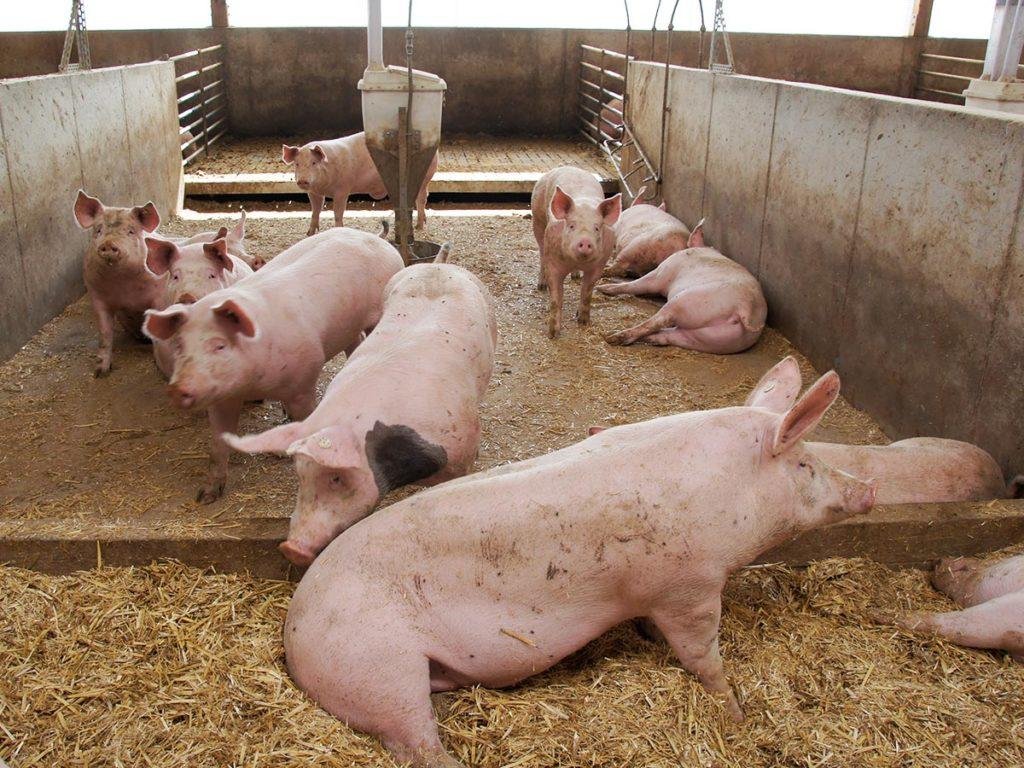Grainy morning light seeps through the haze above the new piggery. As the sun lifts, unseen hands set modern ingenuity into motion—a sight unfamiliar even five years ago. Drawing from a recent extension bulletin, Grainy morning light seeps through the haze above the new piggery. As the sun lifts, unseen hands set modern ingenuity into motion—a sight unfamiliar even five years ago. Drawing from a recent extension bulletin, we can see how cutting-edge approaches are truly transforming the landscape of pig farming across the country. Today’s pig farmers are embracing technological innovations that not only improve productivity but also enhance animal welfare and environmental sustainability.
The integration of Precision Livestock Farming (PLF) has become a game-changer for modern pig operations. By utilizing sophisticated barn sensors and data analytics, farmers can now monitor their animals’ health and environment in real-time, allowing for early detection of health issues and behavioral changes. This technology-driven approach optimizes feeding strategies, water consumption, and barn temperature, resulting in healthier pigs and significant cost savings for producers.
Revolutionary Feeding Technologies
The days of manual feeding and general nutrition plans are rapidly fading into history. Automated feeding systems now precisely measure and deliver customized feed to each pig based on its specific nutritional requirements. This targeted approach has demonstrated remarkable improvements in growth rates while simultaneously reducing feed waste—a win-win for both farm profitability and environmental considerations.
These advanced systems represent a fundamental shift in how farmers approach swine nutrition management. Rather than applying a one-size-fits-all feeding regimen, producers can now fine-tune diets based on age, weight, health status, and even genetic background, maximizing efficiency at every stage of production.
Water Quality Optimization
Recent studies have highlighted the critical yet often overlooked relationship between water quality and nursery pig performance. Water, as the most essential nutrient, significantly impacts feed intake, growth rates, and overall health in young pigs. Forward-thinking producers are now implementing comprehensive water quality monitoring systems that assess factors including mineral content, pH levels, and potential contaminants.
Treatment technologies ranging from simple filtration systems to advanced purification methods are being deployed to ensure optimal drinking water conditions. The return on investment for these systems has proven substantial, with improved growth performance directly correlating to enhanced water quality parameters.
Genetic Advancements Reshaping the Industry
Perhaps the most exciting development in recent months has been the FDA’s approval of PRRS-resistant pig gene-editing technology, announced in late April 2025. This breakthrough represents a potential turning point in combating one of the industry’s most devastating diseases. Porcine Reproductive and Respiratory Syndrome (PRRS) has long plagued producers with substantial economic losses, but gene-editing technology now offers a promising solution through resistance breeding.
The application of artificial insemination (AI) has also gained significant traction, providing farmers access to superior genetics while reducing disease transmission risks. This approach to breeding efficiency allows smaller operations to improve herd genetics without maintaining expensive boar facilities, democratizing access to quality genetic material.
Enhanced Biosecurity Protocols
The implementation of stringent biosecurity measures continues to evolve as a cornerstone of modern pig farming. These comprehensive programs include controlled access systems, shower-in/shower-out facilities, vehicle disinfection stations, and strategic farm layout design to minimize cross-contamination risks.
Digital technology now enables real-time monitoring of biosecurity compliance, with automated alerts for potential breaches. These systems also facilitate rapid response protocols during disease outbreaks, limiting spread and economic impact through immediate containment actions.
Sustainability Initiatives Gaining Momentum
Modern pig farming is increasingly focused on environmental sustainability, with innovative waste management systems converting manure into valuable resources. Anaerobic digesters transform waste into biogas for electricity generation, while advanced composting systems produce high-quality soil amendments.
Water recycling technologies have reduced freshwater consumption by up to 30% in some operations, while precision application of manure nutrients has minimized runoff concerns while maximizing crop utilization of these natural fertilizers. These sustainability practices not only address environmental concerns but often generate additional revenue streams or cost savings for forward-thinking producers.
As we move deeper into 2025, the integration of these technological innovations continues to accelerate, reshaping pig farming into a more precise, efficient, and sustainable industry. Farmers who embrace these advancements are positioning themselves at the forefront of a new agricultural era, characterized by improved animal welfare, environmental responsibility, and enhanced productivity.

